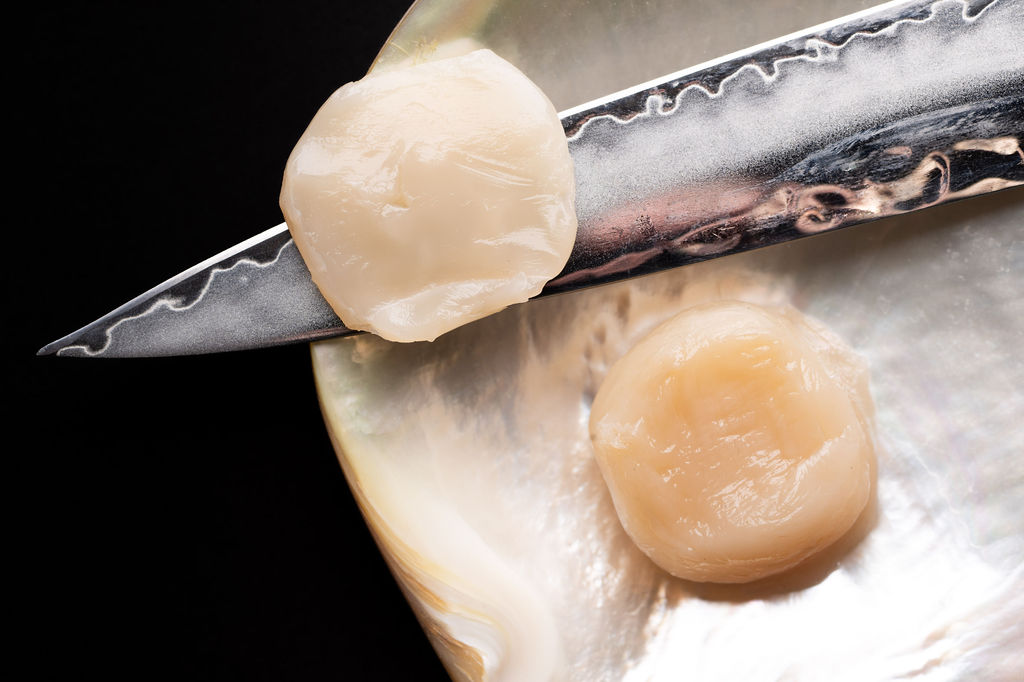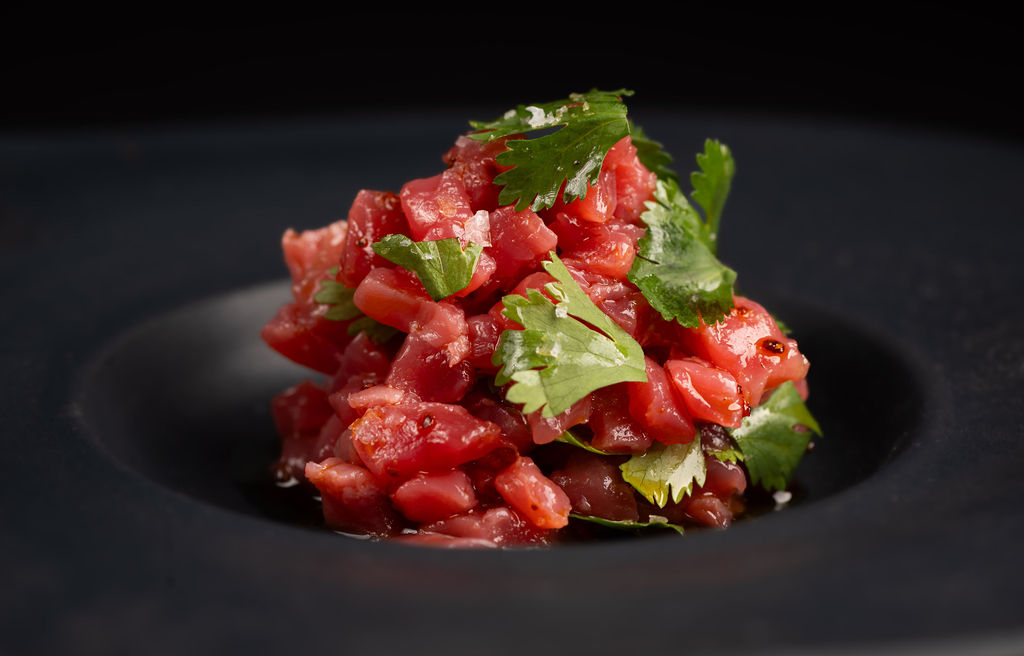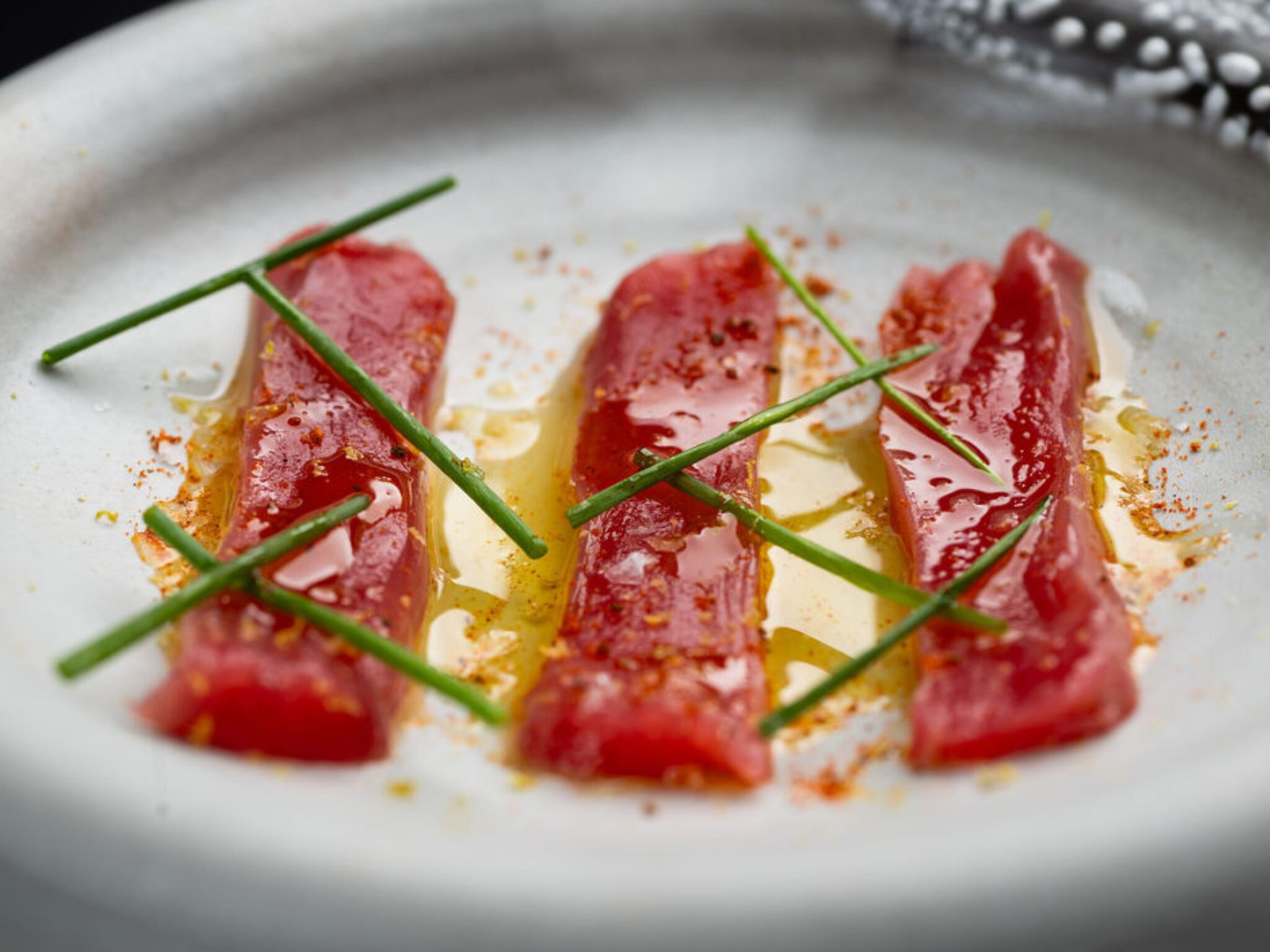Aqua Cultured Foods to Roll Out Fish-Free Seafood in Chicago Restaurants After Tapping Ginkgo’s Microbial Expertise
4 Mins Read
Chicago-based startup Aqua Cultured Foods has partnered with Boston’s synbio firm Ginkgo Bioworks to optimise the production of its fermentation-derived whole-cut seafood. It will soon launch its first analogues at Michelin-starred restaurants in Chicago.
The collaboration will see Aqua Cultured Foods tap into Ginkgo Bioworks’ cell programming and biosecurity platform to optimise its microbial fermentation technology and enhance its whole-cut seafood analogues.
It comes a year after the alt-seafood startup raised $5.5M in a pre-seed round led by Stray Dog Capital and involving South Korean food giant CJ CheilJedang. By partnering with Ginkgo – which works with a number of companies for food, materials and ingredient solutions – Aqua Cultured Foods can fine-tune its patent-pending technology to make seafood analogues with the same taste, texture and look as their conventional counterparts, ahead of its upcoming market launch.
“With Ginkgo, we will further optimise our microbial consortium to elevate the quality and consistency of our products,” Aqua Cultured Foods CSO Stefan Baier told Green Queen. “By optimising our strain, we could grow different scaffolds with tailored textures and improve nutrition beyond a good source of fibre.”
Leveraging Ginkgo’s expertise for better alt-seafood

Ginkgo, which became a public company on the NYSE in 2021 with a $15B valuation after closing a SPAC deal with Soaring Eagle Acquisition Corp, has partnerships with the likes of ingredients giant Givaudan, pharmaceutical behemoth Pfizer, precision fermentation companies Vivici and Imagindairy, and mycoprotein startup Nosh.bio, among others. Launched in 2008, its tech has also led to several spinoff companies, like Motif FoodWorks and Joyn Bio (a joint venture with Bayer). So it makes sense for Aqua Cultured Foods to partner with a company with such a pedigree.
“We have fish-free seafood down to a science. Our patented process starts with our proprietary microbial consortium. We grow the fibre-containing scaffold in our signature media in vertically stacked trays until we get the right size and texture of whole-cut filets,” explained Baier. “Once our filets achieve the desired thickness, we use plant-based flavours and colours to mimic the rich, buttery texture and savoury umami flavours of freshly caught fish.”
The link-up will see Ginkgo leverage its high throughput next-generation sequencing and advanced analytics services to help optimise and tune Aqua Cultured Foods’ strains (for which it is pursuing a self-affirmed Generally Recognised as Safe status in the US) and scale up its manufacturing process. “Our low-resource production process can occur rapidly, anywhere, and scale to feed Earth. Aqua offers a globally adaptable and environmentally compelling solution at pilot scale,” said Baier.
Moreover, it will aid the latter in amplifying its R&D capabilities and further optimising its strain consortium to produce not just whole-cut and ground seafood analogues, but flavours and textures for the wider food industry eventually. “Beyond sequencing, we envision engineering our proprietary consortium for next-gen products, pushing alt-seafood boundaries,” said Baier. “We look forward to how our sustainable approach can revolutionize the fishing industry and contribute to the regeneration of our oceans.”
Aqua Cultured Foods will launch at Chicago eateries this spring

Aqua Cultured Foods’ products are tuna and scallops, which maintain freshness and tenderness for six weeks. Its third offering, a minced shrimp that can be used as a filling in dishes like dumplings and sushi rolls, is almost ready for launch.
“Our tuna will be sold directly to restaurant chefs in 8 oz whole-cut saku blocks to replicate the product experience of comparable sushi-grade tuna,” revealed Baier. “Once purchased, chefs can prepare and plate Aqua as desired, fueling their culinary creativity.”
The startup previously acquired a 5,000 sq ft food-grade facility in Chicago for its pilot plant, with a 500 sq ft room that can produce 5,000 lbs of raw product at present. This is enough to serve about 20 restaurants in the Chicago metropolitan area, which is exactly where you will see Aqua Cultured Foods’ make its debut, previewing its products on Michelin-starred restaurant menus this spring.
The seafood industry is inundated with climate and health issues. Microplastic pollution, toxic chemical runoff, antibiotic and pesticide use, sea lice and mercury all affect the seafood humans consume, while overfishing aggravates biodiversity loss and could lead to a collapse of global fisheries by 2048. Meanwhile, human rights abuse is also rampant in the industry.
But vegan seafood captures just 1% of the overall meat alternatives sector, and an even tinier 0.2% of the seafood industry. Amid a tough financing landscape and consumer market, companies like New Wave Foods and Ordinary Seafood have been forced to shut down.
That said, fermentation and whole-muscle products may be the key to unlocking the category’s potential, allowing startups to produce seafood analogues that more closely resemble conventional products, both in terms of functionality and nutrition, but without the ill health effects and climate footprint. It’s the approach taken by the likes of New School Foods, Pacifico Biolabs, Esencia Foods, as well as Revo Foods. The latter unveiled a fungi-derived vegan octopus earlier this month, which quickly sold out – demonstrating that demand for high-quality seafood analogues persists.




